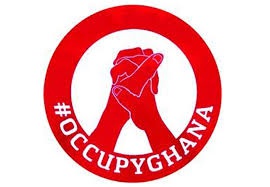OccupyGhana, a pressure group, has asked President Nana Addo Dankwa Akufo-Addo to allow the Auditor-General to audit the contract between the Ghana Revenue Authority (GRA) and Strategic Mobilisation Limited (SML).
It has also asked him to revoke his appointment of a private audit firm to carry out the audit and comply with article 187 on the matter.
A statement issued by the Group said in article 187, the Constitution anticipated situations where public interest in the financial matters of public auditee institutions (such as through GRA) may require special audits.
It said that was why article 187(8) specifically provided that when such matters arose, the Council of State should advise the President that an “Article 187(8) Public Interest Audit,” was required.
“Indeed, and in practice, the President may seek and then obtain that advice. Then, the President would request the Auditor-General to conduct the audit.
“This provision in article 187 is so critical and significant that the Constitution specifically sets it down as the only instance where a President has the power to request the independent Auditor-General to do anything.”
The statement, therefore, urged the Council of State to send its advice to the President on the matter.
It said if the Council of State and/or the President failed, neglected or refused to comply with article 187, the Auditor-General should commence and conduct a special audit on his own under section 16 of the Audit Service Act.
OccupyGhana said it had seen and read a letter dated January 2, 2023, and emanating from the Office of the President that directed that an audit be conducted into the contract between the GRA and SML, adding that, the contract had attracted a lot of public interest in recent days.
The Group said while they welcomed both a public interest audit and the announced Parliamentary inquiry into the matter, it was concerned that the President’s choice of a private audit firm to conduct the audit could be unconstitutional as it ignored direct constitutional provision made and meant to address such situations.
The statement said Ghana should not spend time and money on an audit that may turn out to be unconstitutional and, therefore, worthless, leaving room for legal challenges.
It said Ghana would lose nothing if the Auditor-General was allowed to conduct the special audit in accordance with article 187(8) of the Constitution.
“The several advantages with complying with the constitutional provision include, critically, giving the Auditor-General the opportunity under article 187(7)(b) to disallow payments found to be contrary to law and then to surcharge (1) “any expenditure disallowed upon the person responsible for incurring or authorising the expenditure”, and/or (2) “the amount of any loss or deficiency, upon any person by whose negligence or misconduct the loss or deficiency has been incurred.”
General News of Sunday, 7 January 2024
Source: GNA
Allow Auditor-General to audit GRA, SML contract — OccupyGhana to Akufo-Addo
 OccupyGhana logo
OccupyGhana logo
















